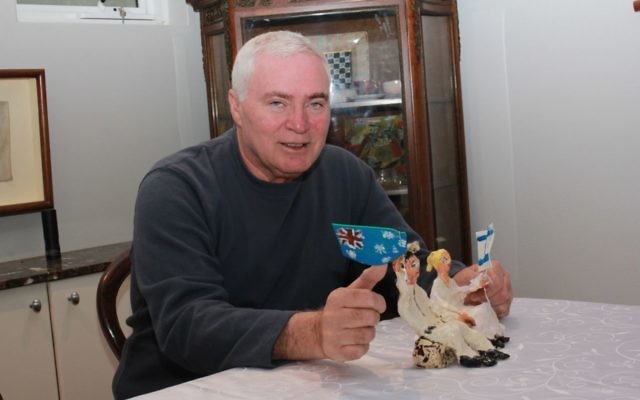Imprisonment, prayer and the power of believing
EVEN during his darkest days while confined in a cold and dirty Damascus prison cell following the Yom Kippur War, Amnon Sharon was sure he would be freed.
EVEN during his darkest days while confined in a cold and dirty Damascus prison cell following the Yom Kippur War, Amnon Sharon was sure he would be freed.
After being captured during a battle in which five soldiers in his tank company were killed, Sharon spent eight months in captivity – five being tortured in solitary confinement – before being freed in a prisoner exchange.
He shared his story with The AJN last month while in Australia to promote the work of the Zahal Disabled Veterans Organisation (ZDVO) – known in Israel as Beit Halochem – which supports the care and rehabilitation of Israel’s 50,000 injured war veterans, victims of terror and their families.
Sharon told of how while in captivity, though not religious, he began to pray three times a day.
“When I finished to say my prayer, I felt all over my body warm streams, and inside a voice said to me, ‘Amnon, be strong. God is with you.’ And I believed that God was with me all the time,” he said.
He also started to have daydreams. In one, during November 1973, he dreamed he would be back home in Israel on June 8, 1974.
“I remember one brutal, very difficult interrogation and torture that I wanted to die,” he said.
“But then an inside voice said, ‘Amnon, be strong, every day you’re closer to June 8.’”
Sharon was set free on June 6.
“When you hope, you’re a pessimist. When you believe, you achieve your whole goal,” he said.
A month earlier, after being told by the Red Cross that his wife Bella had given birth to a son, he decided he would call him Dror, meaning freedom.
“Maybe it’s telepathic, but Bella thought the same, and she called him Dror. We didn’t speak,” he said.
Following his release, Sharon served for another 20 years in the armoured corps of the IDF.
More recently he was a consultant on the Israeli television program Prisoners of War, which inspired the hit US series Homeland.
Today, still suffering from post-traumatic stress disorder (PTSD), he spends a lot of his time at ZDVO’s Tel Aviv centre, where among other activities, he paints and sculpts.
“My teacher said that your demons, instead of being in your head, will be in the sculpture and the picture,” he said.
He added: “The love and the help of the people in Beit Halochem help us to be with our heads up and to feel as a regular man. It’s a second home for us.”
Donate: www.zdvo.com.
GARETH NARUNSKY


comments